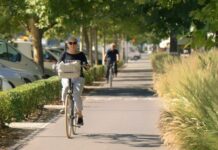By Angela Rocheleau
Summer seems to fliy by quickly in New England. Before you know it the cold weather arrives. For seniors, that means more isolation and lack of exercise. This time of year we receive inquiries from families concerned about their elderly loved ones that are trying to live independently at home. Here are some recent questions and our responses:
Q: My elderly mom lives alone in another state. We had to relocate with my husband’s new job. Now I am worried about her isolation from family and her health as our visits will be limited to holidays. She never socialized much as most of her activities centered around us. What do you recommend?
A: You may be interested to know that researchers followed nearly 1,500 people over the age of 70 for 10 years and found that people with the strongest network of good friends lived longer than those with the fewest close friends. Surprisingly, close ties with families and relatives did not make a huge difference.
But, a close network of friends and confidants significantly reduced the risk of death during that period. Try to encourage your mother to find her own circle of friends she can spend social time with. There are many opportunities through senior centers and elder service programs. If she truly won’t make the effort, consider hiring a home health aide that can act as a companion for her several times a week. The aide can also help with simple chores around the home and keep a close eye on your mom’s health.
Q: My elderly uncle lives with us now as his ability to walk and speak has been compromised since his stroke. My family is concerned that he seems to be in a world of his own not smiling or responding much to us.
A: Touch is so very important to seniors, and humor can lift the spirits. You never know the power of gentle attention. Make that extra effort to find ways to relate to him by putting your arms around him to help get him out of bed or to do anything. Create a daily ritual by giving him a little squeeze and make a joke out of it.
The power of human contact to our aging family members is often underestimated. That tiny bit of affection added to the care of an individual every day can make a huge difference in their lives and attitudes. Hopefully you also have a home health aide assisting in the everyday care of your uncle.
Q: My dad wants to start on an exercise program. He is 78 and I am very worried about this idea as he has never been very athletic.
A: Exercise is a great thing. Anything that makes you stronger will decrease the chance of falling. It may help to improve his posture as well. Falling is a very real concern for the elderly. Every year, falls kill 10,000 seniors across the country and send thousands of them to the hospital. Half of the seniors hospitalized for hip fractures as a result of a fall are never able to return home or live independently. Exercise can offset the natural aging process in which the body loses about one percent of muscle mass every year after age 30. The loss of muscle mass can lead to a weakened state called sacropenia, where the person can no longer do the simple tasks of daily life. Encourage and support your dad. Just make sure he does this under supervision and builds his strength a little at a time.
Angela Rocheleau has 25 years of experience in the home health care industry focusing on leadership roles for the past two decades. She serves on the Better Business Bureau board of Central New England and the Executive Board of the Mass Council for Home Care Aides.













